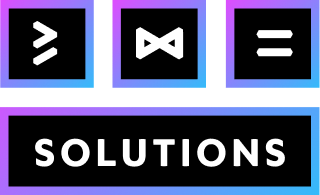
Another week of global quarantine is coming to an end, and 482.solutions hopes all of you are safe and healthy. However, the blockchain world is still actively evolving despite the global pandemic. To help you stay aware and keep up with the recent updates on top blockchain technology projects, we have prepared a weekly news digest. We have collected the most interesting news of the week that you might have missed, so don’t lose an opportunity to get informed and entertained!
Block.one Invests $150 Million In The Blockchain Social Network Voice
The publisher of EOS blockchain protocol Block.one has announced that it decided to invest $150 million in its blockchain-based social media network Voice. This project was launched in June 2019 as a more transparent social media for users from all over the world.
Block.one has initiated this significant project funding to start Voice’s independent life. This process has started in January with strengthening the project’s team, hiring former Forbes Global Chief Digital Officer Salah Zalatimo and presenting the fresh project beta version shortly after that. The beta version of the product is now available only in the US and is closed for the side users.
The official release of the Voice social media is planned in the first quarter of 2021. Platform’s design is slightly similar to Twitter with the main difference that the users can be rewarded for their content with Voice Tokens. All registered users are awarded with tokens on the daily basis depending on their activity, but the token itself does not have any monetary value.
Alibaba Implements Blockchain To The World’s Largest E-commerce Platform
Alibaba Group decided to upgrade its cross-border e-commerce unit Kaola with the implementation of blockchain technology to improve its product traceability. The world shopping platform is using Ant Financial’s blockchain technology for the logistics details recording, customs clearance, and product registration.
Kaola has been purchased by Alibaba Group in 2019 for $2 million, and now it is one of the largest e-commerce platforms in the world focused on the imported goods sales in China. With blockchain technology, Kaola users will be provided with the traceability icon on the order page after a consumer purchases the item.
Physical products trace will be organized through the tags added to each product that has a two-dimensions code, similar to QR code, as well as anti-counterfeit fingerprints such as chemical tagging or laser etching. The blockchain will track the movement of goods from its suppliers to its online listing and on to the customer.
The blockchain upgrade of the traceability solution will cover all of Kaola’s products, and going forward, third party merchants on the platform and overseas direct mail services will also use the blockchain. Alibaba plans to scale the solution to cover 62 countries and regions, 2,897 categories and 7,432 brands.
Malaysia Uses Blockchain To Track Sustainable Palm Oil
The Malaysian Palm Oil Council (MPOC) in collaboration with blockchain development company BloomBloc have developed a blockchain app that will track palm oil throughout the supply chain. After the successful project testing, the blockchain platform is available in a pilot roll out to local oil palm growers, palm oil processors, plantations and family-owned smallholders.
The new solution registers each tree, collecting all individual information about it, therefore giving users the ability to track all way from the plantation to the mill, and then to the production of the final product. This app follows the mandatory Malaysian Sustainable Palm Oil (MSPO) certification standard nationwide that has been implemented throughout the country.
This is a significant step for the whole palm oil industry in Malaysia, as the country now faces such problems as illegal logging and the replacement of forests with plantations. MPOC CEO Datuk Dr Kalyana Sundram believes that this app will increase common trust in the palm oil supply chain, demonstrating the international community the high value Malaysia gives to its people and the planet.
